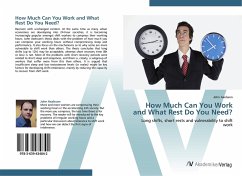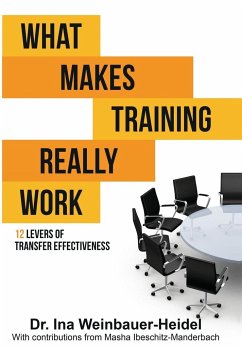
How Much Can You Work and What Rest Do You Need?
Long shifts, short rests and vulnerability to shift work
Versandkostenfrei!
Versandfertig in 1-2 Wochen
32,99 €
inkl. MwSt.

PAYBACK Punkte
16 °P sammeln!
Revision with unchanged content. At the same time as many urban economies are developing into 24-hour societies, it is becoming increasingly popular amongst shift workers to compress their working hours. John Axelsson's thesis deals with the problem of how much you can compress your working hours without compromising sleep and performance. It also focus on the mechanisms as to why some are more vulnerable to shift work than others. The thesis concludes that long shifts (up to 12h) may be acceptable, whereas short recovery time (8h or less) is not. Most of the problems with short recovery perio...
Revision with unchanged content. At the same time as many urban economies are developing into 24-hour societies, it is becoming increasingly popular amongst shift workers to compress their working hours. John Axelsson's thesis deals with the problem of how much you can compress your working hours without compromising sleep and performance. It also focus on the mechanisms as to why some are more vulnerable to shift work than others. The thesis concludes that long shifts (up to 12h) may be acceptable, whereas short recovery time (8h or less) is not. Most of the problems with short recovery periods were related to short sleep and sleepiness, and there is, clearly, a subgroup of workers that suffer more from this than others. It is argued that insufficient sleep and low testosterone levels (in males) might be key factors for developing shift intolerance, mainly by reducing the capacity to recover from shift work.












